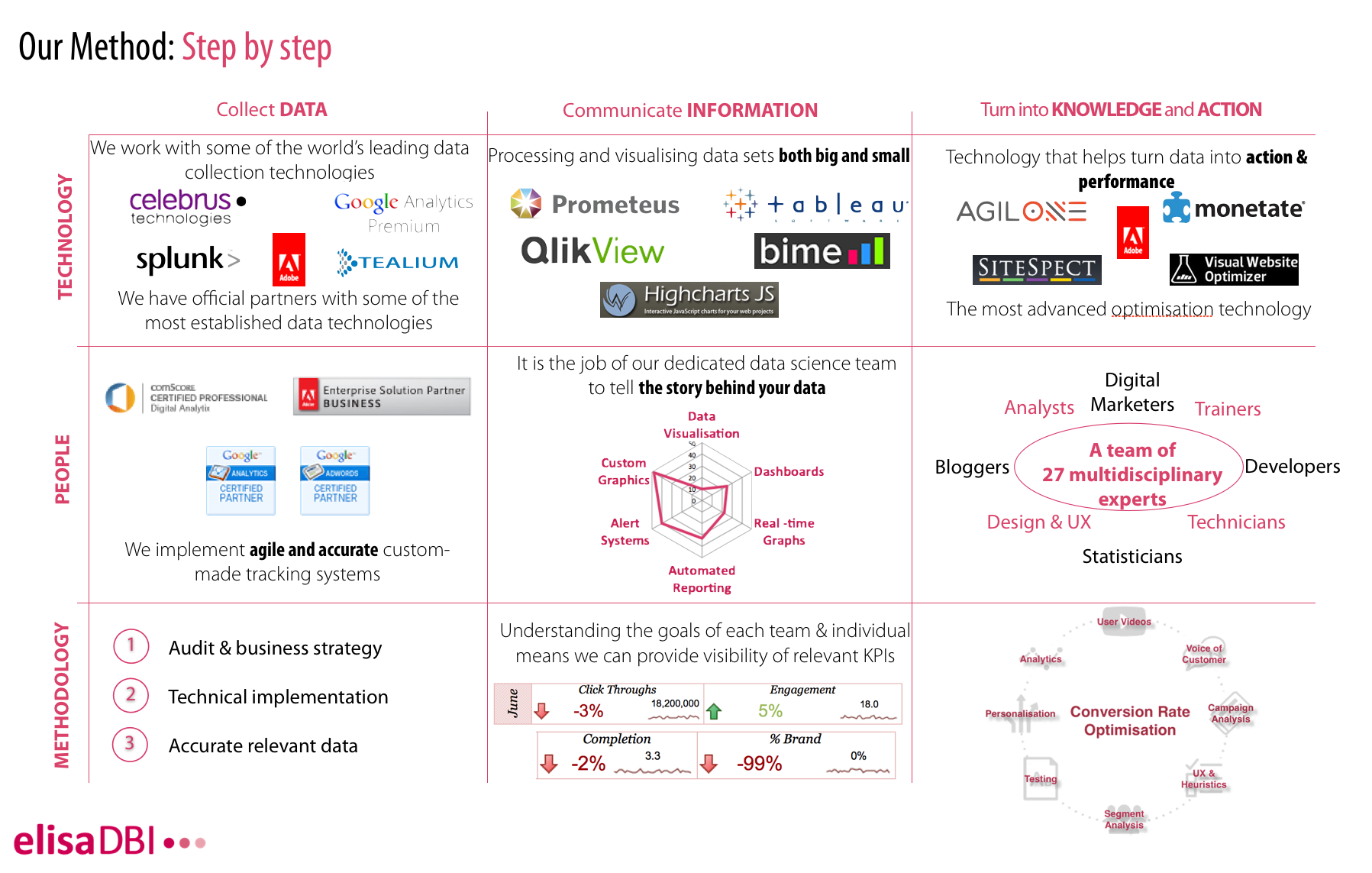WireColumn: 2013 - The Rise of the 'Datavores'?
by Romany Reagan on 13th Mar 2013 in News


Robert Jackson is Managing Director at elisaDBI.
2013 has the potential to become the first year that data-driven business will be considered mainstream. Love it or hate it, the hype around Big Data has helped raise awareness of the benefits a data-driven culture can create. The fact is, organisations who adopt it are growing faster, making more profit and being more efficient.
Having worked in web analytics for over seven years now, I'm well acquainted with the pursuit of data-driven business. The removal of intuition in decision making has long been a Shangri La for business owners, managers and marketers alike. As digital marketing began to explode at the beginning of the last decade, there were many who believed that faith-based marketing would disappear. In reality, most companies still have guesswork at the heart of managing huge budgets and important decisions.
December saw the launch of a report by the lottery-backed charity NESTA into the use of data in British business. The first of its kind in Britain, it found that just 18% of the 500 companies surveyed are making effective use of the data they collect. Furthermore, these 'Datavores', as the report calls them, are out-manouvering their competitors with sophisticated collection and analysis techniques. These practices are leading to both increased innovation and growth.
Similar reports by the Harvard Business Review and IBM have also identified significant business benefits to a data-driven culture. So, if the evidence points to such clear advantages, then why aren't more companies investing in the data revolution?
Well, it's not easy. Organisational change can be painful, particularly when the the change is so disruptive. First of all, the change needs to come from the top. HiPPOs (Highest Paid Person's Opinion) are often an obstacle to this, especially as their situation as part of a senior exec team means their influence could be marginalised. Beyond that, here at Elisa DBI we see businesses struggle with three challenges over and over, regardless of sector:
1) Accuracy: Almost all clients we first engage with have some degree of problems with integrity of data. Clean data is a must for businesses wishing glean insight that will drive performance.
2) Complexity: Even small businesses now have access to countless sources of data. With more devices, more social networks and more marketing channels than ever before, structuring data into a usable format is a constant challenge.
3) Action: The task of turning the huge volumes of data into practical benefits is the main obstacle facing most businesses today. Converting data into decisions and incremental performance is a massive challenge.
As with any complex system, building a framework helps. By breaking down the problem into its constituent parts, the team at Elisa DBI have developed an approach to helping companies deal with their data challenges. At the core of this are people, process and technology. All three are crucial to solving the aforementioned challenges:
By establishing a process that turns raw data into actions, companies can begin to realise the potential of the data they collect. We see most companies so crippled by the top left corner that they never communicate information beyond MS Excel and barely contemplate action processes such as multivariate testing.
When we first engage with a company, we look at cleansing their data collection; making sure it is not just accurate but also relevant. Next is a process of enrichment; visualising multiple data sets and correlating trends that can tell the story behind the data. This has to be done in a way that is engaging and clear; data visualisation is a great way of doing this and something we really enjoy! By combining both quantitative data and qualitative data, such as user surveys and focus groups we are able to hypothesise scenarios for change. We then present these hypotheses to clients, supplemented with evidence needed to build a business case for change. Of course with such a data-led approach results are key, so the final stage of the cycle, before beginning again, is to showcase the results. This doesn't always mean uplifts in performance; some of the most insightful experiments can be the ones that fail. Knowing what doesn't work can be powerful information, as long as you have the agility to act upon it.
I'm lucky enough to work with such a talented team who know both technology and marketing. As there are only eight of us in the UK office, we're constantly collaborating and sharing new ideas that cross disciplines. This obviously isn't the case in a lot of larger organisations. A trend we've seen a lot is the gap between the digital marketers and traditional data or BI teams. It is more essential than ever that companies look to merge the efforts of both traditional database experts and the people providing intelligence to campaigns and acquisition. We see businesses where there are great pockets of work going on in isolation from the wider organisation; this is dangerous.
Ultimately, a true data-driven culture must come from senior management. Only by insisting on a collaborative approach to data science and data-led optimisation will the true rewards of the data revolution be reached.









Follow ExchangeWire